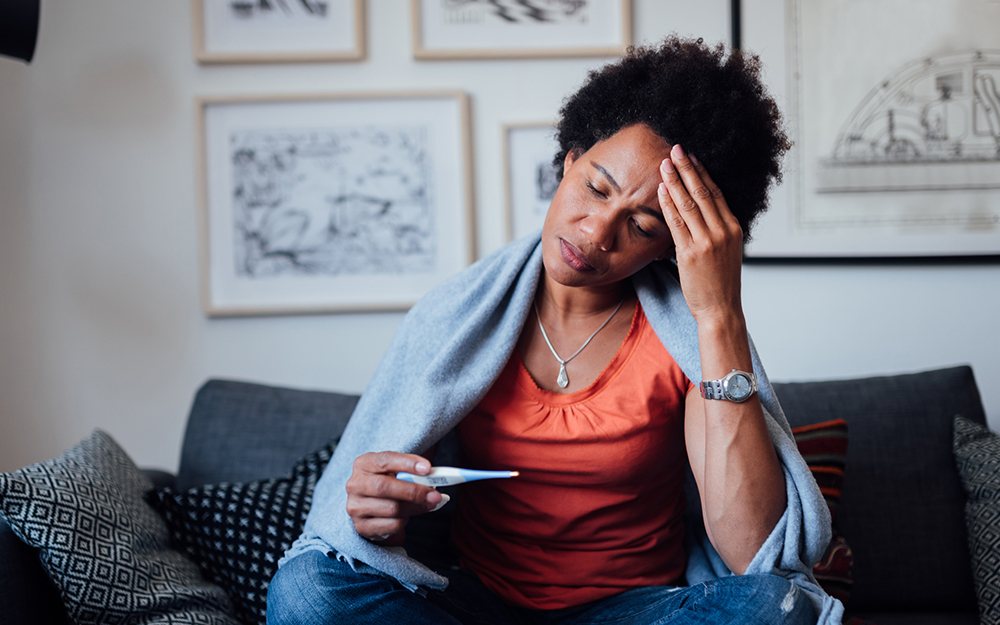Coping With Complicated Grief
Date
March 21, 2022

Date
March 21, 2022
Credits
Medical providers featured in this article
In Brief
{{cta-block}}
Losing a loved one is one of the hardest parts of being human.
People grieve in many ways. Reactions are as individual as a fingerprint. Some people isolate. Some are unable to cry. Others cry frequently, opening up to anyone who will listen.
Grievers might want to be surrounded by memories or find it too painful to look at any reminders. And one person could cycle through all these feelings, because the grieving process can vary every day or even minute to minute.
"Over time, it gets easier, or less painful, to go back to living—even though the grief may be lifelong."
"What's common is the preoccupation with the loss and an intense yearning to have the person back," says Dr. Itai Danovitch, chair of the Department of Psychiatry and Behavioral Neurosciences at Cedars-Sinai.
But is there a point when that grief can morph into something more complex or unhealthy? Yes, according to the psychiatric community. The American Psychiatric Association (APA) officially recognized prolonged grief disorder (PGD) in 2021.
{{providers}}
The new diagnosis comes at a time when many Americans are grieving. Nearly 1 million Americans—more than 965,000 people—have died from COVID-19 as of March 2022, according to the Centers for Disease Control and Prevention. Among them were the parents or grandparent caregivers of more than 140,000 U.S. children.
Healthy grieving integrates loss
In the immediate aftermath of a loved one's death, grief is all-encompassing, causing deep emotional—and sometimes physical—pain. At the time, it's difficult to focus on anything else, Dr. Danovitch explains.
When the initial shock fades, grief continues to ebb and flow. It's normal to face waves of these intense early responses, which can rear their heads at anniversaries or other life events that remind the bereaved person of their loved one.
You might never be fully the same—especially after the death of those you are closest to or didn't expect to lose, like a child. But as the cloud of loss lifts, usually energy starts to return and make room for other areas of your life, such as relationships, work and even joy.
"Over time, it gets easier, or less painful, to go back to living—even though the grief may be lifelong," Dr. Danovitch says.
"We go through a process of coming to accept the loss of a loved one, integrating a worldview that no longer has their physical presence, finding new ways to uncover meaning and purpose, and, ultimately, moving forward in our lives," he says.
Prolonged grief takes over everything
Prolonged or complicated grief, on the other hand, occurs when a person's initial pain continues at the same level every day, swallowing the rest of their life, Dr. Danovitch explains.
In PGD, emotional distress remains overwhelming 12 months after a loved one's death for adults, or six months for children and teens, according to the APA.
People with the condition often feel detached from the rest of the world. Other symptoms include:
- Extreme sadness
- Loneliness
- Bitterness or anger
- Loss of identity or feeling like a part of themselves has died
- Avoidance of reminders of the death, which can become consuming
- Emotional numbness because their feelings seem too extreme to cope
- Sense that life has lost all purpose and meaning
- Disbelief and a lack of acceptance of reality
People with PGD typically aren't able to return to their previous lives or take care of themselves in the way other grievers can without professional support. The death of their loved one is still front of mind, as if the loss had just happened.
Certain factors increase the risk of complicated grief.
The disruption of traditional mourning rituals during the COVID-19 pandemic, such as limitations on family and faith gatherings, made connecting and processing loss harder, Dr. Danovitch says. You're also more susceptible if you had a complicated relationship or conflict with the person who died, or if you were far away and didn't have the chance to say goodbye.
PGD is different from depression
While other mental health conditions might mimic prolonged grief disorder, Dr. Danovitch points out that it's a distinct diagnosis with its own symptoms and criteria.
Depression is defined by apathy and emptiness, he notes. There isn't always a specific trigger. Prolonged grief, though, features an immense desire or obsession with bringing back a loved one who has died.
"The cognitive constructs are a little bit different," he says.
Post-traumatic stress disorder (PTSD) is another similar psychiatric condition that includes repetitive thoughts about a traumatic event. But it's different from PGD in the way the trauma interferes with the brain's stress circuitry and causes a patient's nervous system to reactivate when triggered, Dr. Danovitch clarifies.
Each requires a separate care plan, he stresses.
Still, there is overlap: Loss can make a person vulnerable to depression, and both depression and PTSD frequently occur alongside grief and other mental illnesses.
Complicated grief is treatable
Loss of sleep, regular functioning and hope are indicators that you're stuck in prolonged grief.
If you feel like you're ready to move forward but can't, it's time to see your medical provider.
Treatment can include a mixture of:
- Complicated grief therapy, specifically tailored to maladaptive grief
- Narrative therapy
- Cognitive behavioral therapy
- Supportive psychotherapy
Therapists can help grievers work through memories of the person and develop healthier ways to remember them and reflect, Dr. Danovitch notes. And they can strengthen grievers' coping skills for facing overwhelming emotional responses.
Psychiatric medications don't exist for PGD, but sufferers might benefit from symptomatic relief, such as insomnia treatments.
Grievers also shouldn't underestimate self-care: exercising, sleeping and socializing.
"The loss of somebody close is really disconnecting," he says. "Finding ways to reconnect is critical."






